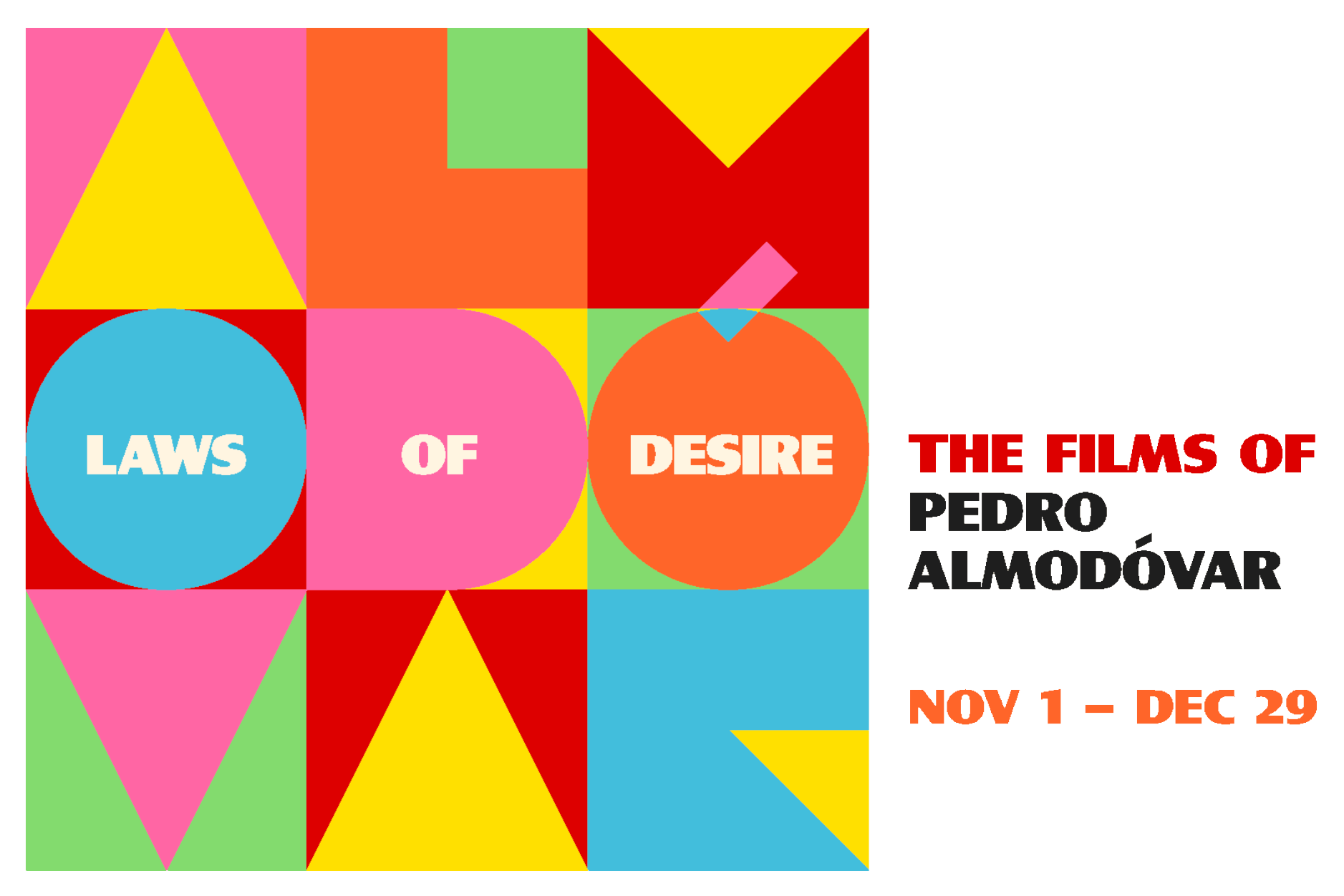
It’s been more than 44 years since a young filmmaker called Pedro Almodóvar burst on the Spanish film scene with his first irreverent first feature. Pepi, Luci, Bom and Other Girls Like Mom (1980) rattled outdated social taboos while providing a vigorous new model for filmmaking in Spain, dispensing with continuity and conventional modes of framing but keeping performance and identity at its very core. The body of films Almodóvar has crafted since then — most within the supportive structures of El Deseo, the production company established with his brother Agustín in 1986 — is a remarkable testament to a filmmaker whose curiosity, craftsmanship, and ingenuity has animated and inspired audiences around the globe for more than 40 years.
No one makes films quite like Almodóvar. Embracing the thriller, melodrama, screwball comedy, farce, film noir, sci-fi, and western, Almodóvar has forged a genre all his own — what the Cuban writer Guillermo Cabrera Infante termed “Almodrama”. He has conjured daring narratives blending the comic and the tragic to powerful effect, realized visionary production designs that seem as alive and dynamic as any one of his characters, and created a gallery of wild and wonderful characters that live on in the viewer’s imagination long after the final credits have rolled.
Almodóvar emerged as a filmmaker in the aftermath of dictator Francisco Franco’s death as Spain was making the transition from dictatorship to democracy. Self-taught, his early films reflected the spirit of experimentation, freedom, and defiance that marked la movida madrileña (literally “the Madrid scene”), a counter-cultural movement that attempted to banish the grey years of the Franco regime by looking to the future. Labyrinth of Passion (1982) and Dark Habits (1983) were gloriously brash and witty, celebrating a new permissive culture where anything and everything was possible.
Almodóvar has continued to reinvent himself in each and every one of his subsequent films — films about desire and its discontents, frustrated ambitions, and creative agency. Almodóvar has described cinema as a way of life, and its language, apparatus, and culture feature across all of his work. There are striking references to the medium itself, its materiality and genres, but, in addition, his narratives are often centred on creatives — directors, actors, photographers, and writers — navigating personal and professional crises that shape their artistic work. Films by the filmmakers he admires “accompany him” in his features, from Duel in the Sun (1946) in Matador (1986) to Johnny Guitar (1954) in Women on the Verge of a Nervous Breakdown (1988), All About Eve (1950) in All About My Mother (1999) to Vertigo (1958) in Broken Embraces (2009). Almodóvar’s is a body of work richly textured with traces of diverse screen influences — from Douglas Sirk and R.W. Fassbinder to Doris Day and telenovelas. This eclecticism is part of what makes him such a unique and original filmmaker.
There are often films within a film, as in Bad Education (2004) and Pain and Glory (2019), films adapted from literary sources as with Julieta (2016, from three short stories in Alice Munro’s 2004 collection Runaway) and Live Flesh (1997, from Ruth Rendell’s 1986 psychological thriller), and plays within films — The Human Voice makes numerous appearances across his trajectory from Law of Desire (1987) to his own rendition of Cocteau’s monologue as his first English-language short film in 2020, starring Tilda Swinton. Theatre, theatricality, and performance (whether on the stage or in life) are constant motifs. Acting is often presented as a mode of survival, with the demands of putting on a play or making a film testing the resolve, stamina, and sanity of his characters.
Indeed, Almodóvar has a deep understanding of acting and actors. He learned his craft by working on the ground with actors, performing in the 1970s with the experimental company Los Goliardos, where he met future frequent collaborator Carmen Maura. Few directors elicit the deft, emotionally rich performances that Almodóvar secures from actors as diverse as Penélope Cruz, Marisa Paredes, and Blanca Portillo. And while there have been male stars, as with Antonio Banderas, Javier Bardem, and Javier Cámara, it is the women who usually steal the show. Almodóvar has placed the emotional lives of women centre stage. Taking inspiration from Hollywood’s woman’s pictures of the 1940s and ’50s, he has dramatized domestic conflicts; given form to grief and solace; explored the politics and poetics of motherhood; and sought, in the words of one of his earliest protagonists, Luci, to give women the space “to find their true selves.”
In the process, he has offered world cinema some of its most memorable women characters. From Chus Lampreave’s wickedly funny grandmother in What Have I Done to Deserve This? (1984) to Paredes’ romantic novelist in The Flower of My Secret (1995) and Cruz’s luminous photographer in Parallel Mothers (2021), Almodóvar has presented women as creative, intelligent, and resourceful, able to transform their own lives and those of the communities they construct in new configurations of kinship and family.
Key to understanding Almodóvar’s evolution as a filmmaker is an ability to make films that are a product of, and a comment on, the times in which he has lived and worked. For all the global reach of his work, he is a resolutely Spanish filmmaker demonstrating the complex ways in which the personal is always political. Beyond the supposed froth and the banter, the role play and the theatricality, lies a director who presents Spain and its landscapes, cuisine, economic woes, political afflictions, and emotional crises at the very centre of his cinema. Perhaps more than any other living Spanish director, Almodóvar has articulated the contemporary zeitgeist: the euphoria of the early years of democracy in his early films, the brash confidence of socialist Spain in the late 1980s, the dour pessimism during the recession of the early 1990s, the decentralised nation-state celebrated in a series of films beginning with All About My Mother (1999), and issues of enforced disappearance, historical memory, institutional corruption, and fault lines of Spain’s democracy in the films that have followed Volver (2006).
With his newest film and English-language feature debut, The Room Next Door, which won the Golden Lion at the Venice Festival and had its North American Premiere at TIFF this September, Almodóvar shows no sign of slowing down. He continues to make films that matter, films that celebrate creativity as an enabling act, a binding mechanism that brings a broken family together or refashions how the past is remembered. The films of Pedro Almodóvar show the potential of art to embody the temper of the times with wit, verve, humour, elegance, and profound humanity.
Essay by Maria Delgado
Tickets will be available to Members on Wednesday, October 16 at 10am, and to the public on Friday, October 18 at 10am.
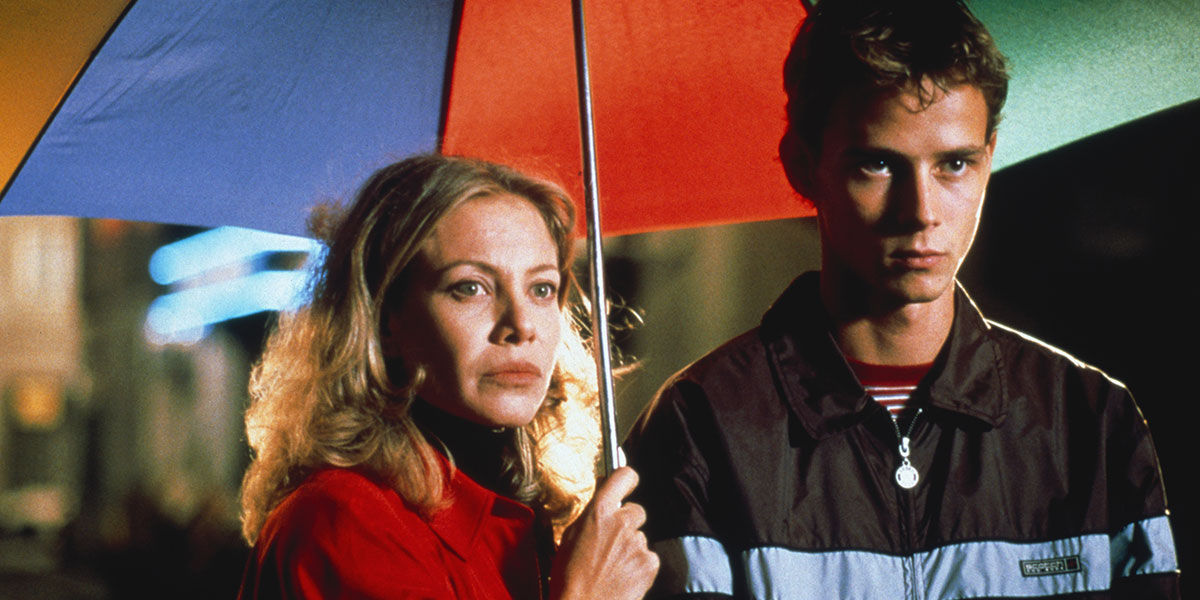
All About My Mother with Lina Rodriguez
Friday, November 1 - 7pm
Sunday, December 29 - 6:30pm (No intro)
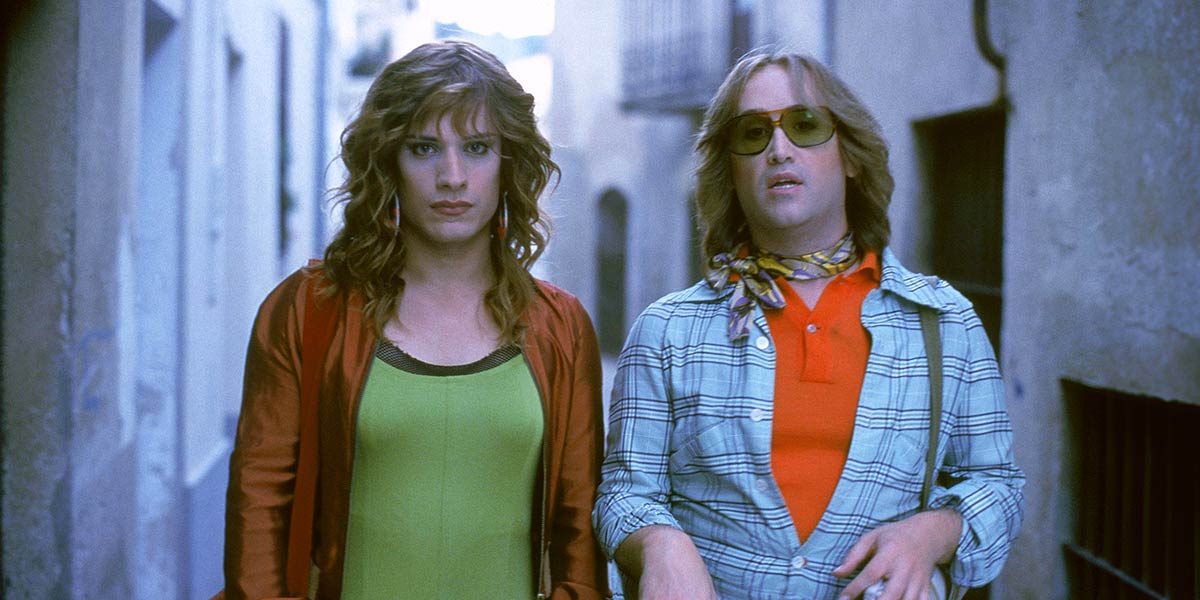
Bad Education with Elie Chivi
Saturday, December 7 - 4pm

Broken Embraces followed by The Cannibalistic Councillor
Wednesday, November 6 - 6:30pm
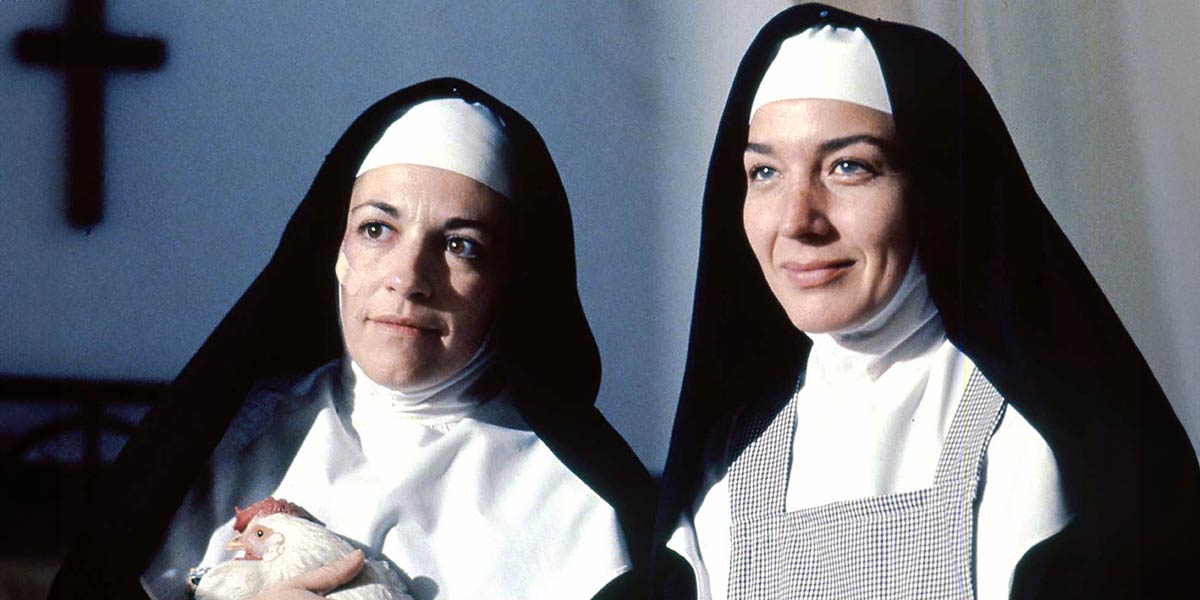
Dark Habits with recorded intro by Chema González Martínez
Saturday, November 9 - 4pm
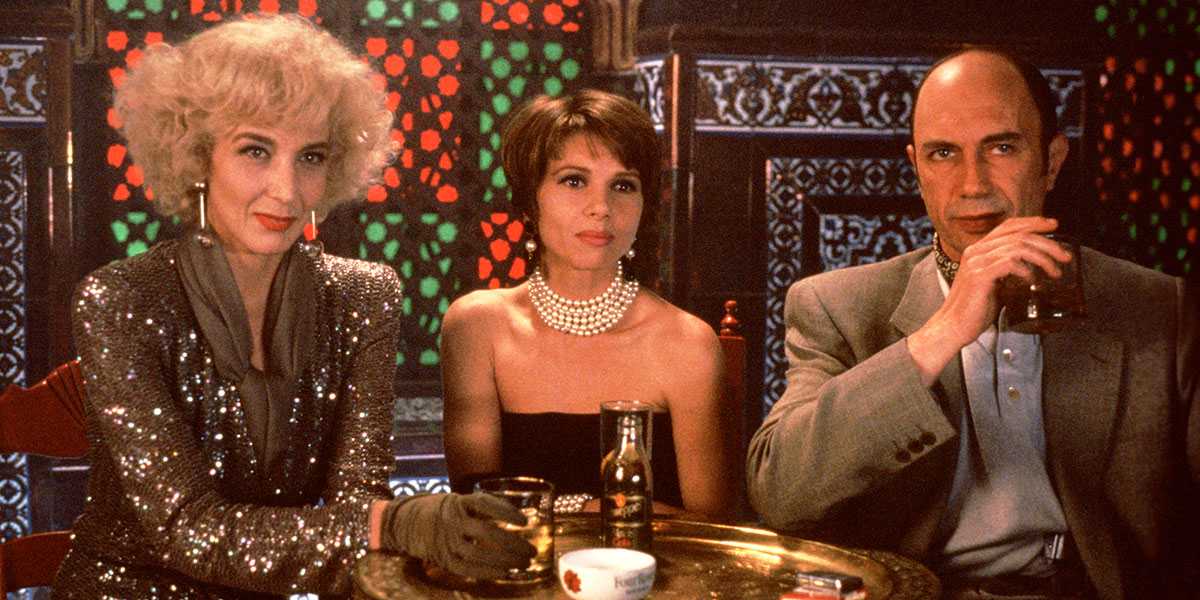
High Heels with Alicia Fletcher
Thursday, December 12 - 7pm

I'm So Excited
Sunday, December 15 - 4pm

In Conversation with... Alberto Iglesias
Saturday, December 7 - 7pm
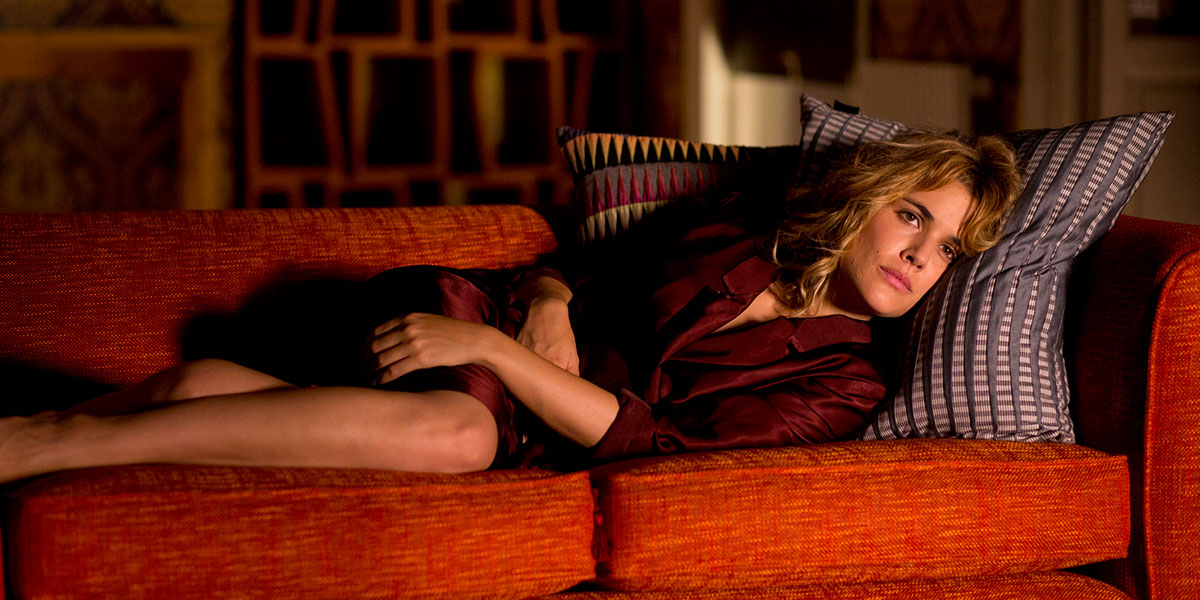
Julieta
Saturday, December 28 - 4pm
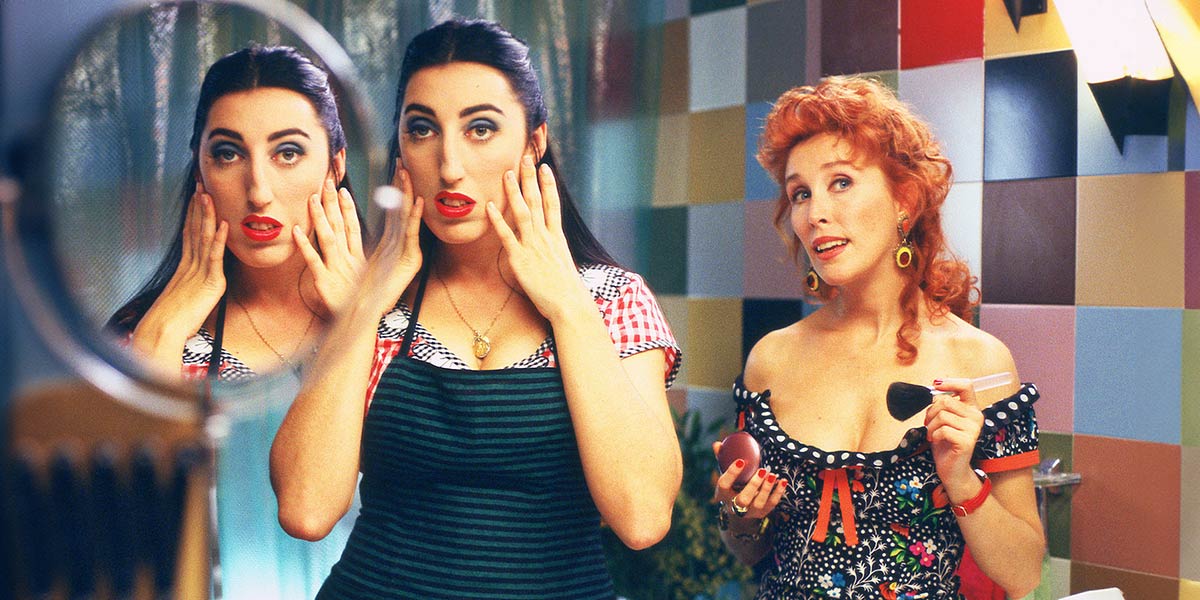
Kika
Sunday, December 8 - 3:30pm
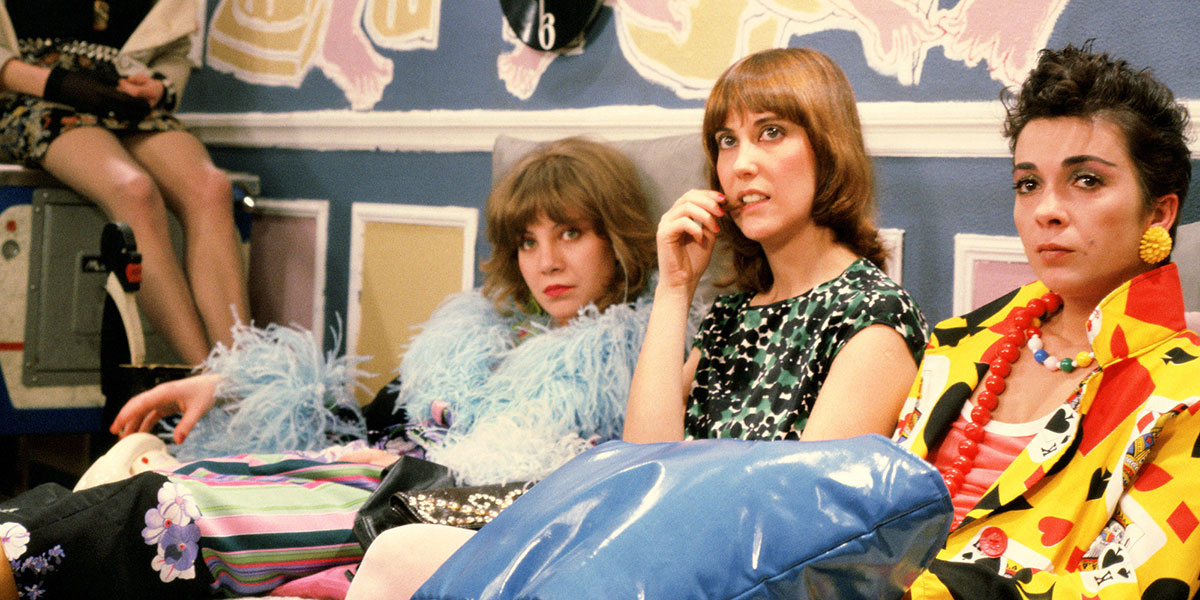
Labyrinth of Passion
Saturday, December 14 - 4pm
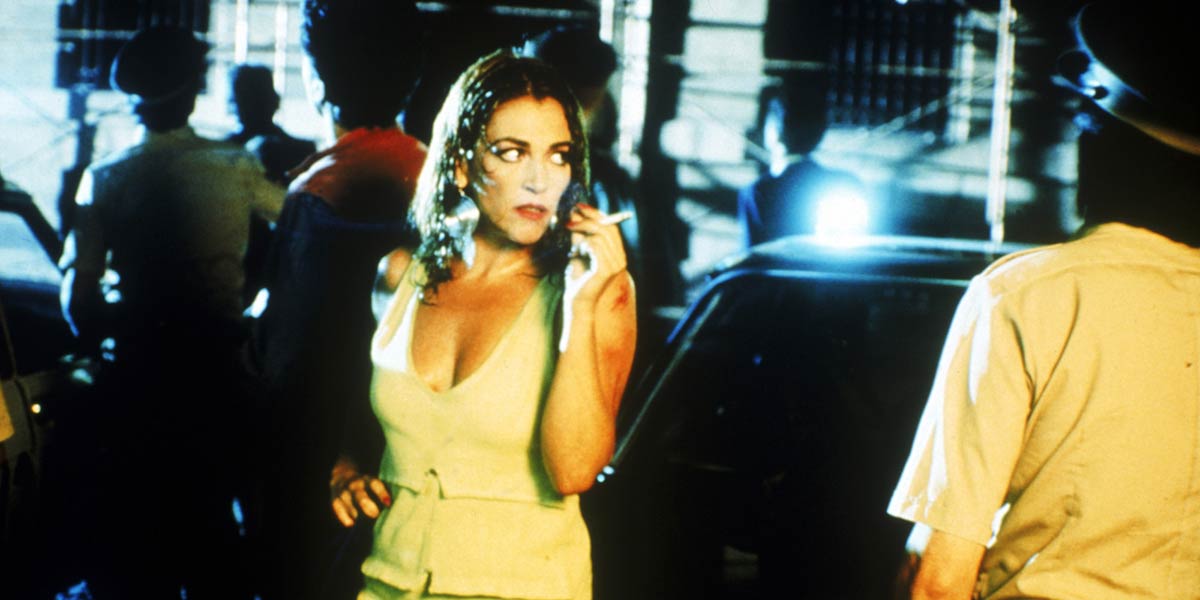
Law of Desire with Peter Knegt
Saturday, December 21 - 6:30pm

Live Flesh
Saturday, November 23 - 4pm
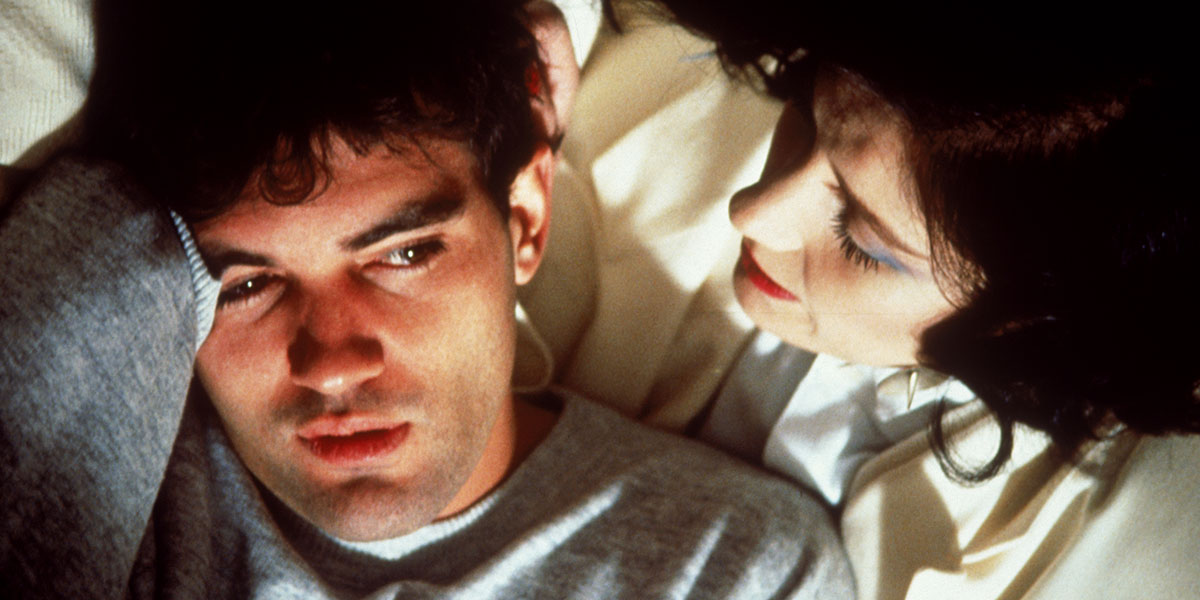
Matador
Thursday, November 21 - 6:30pm
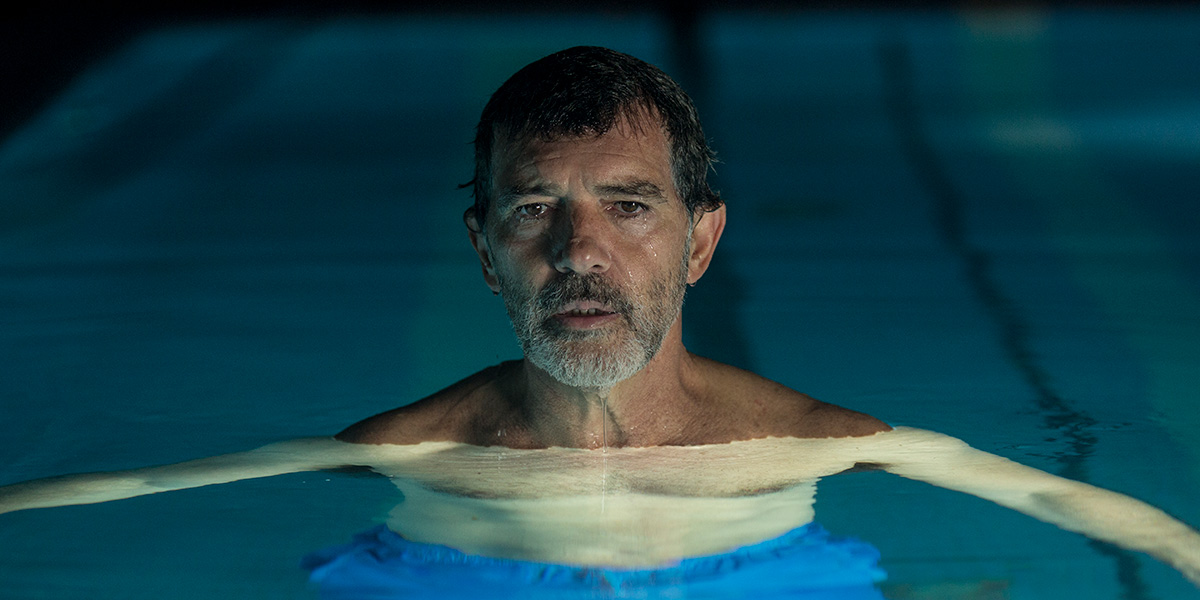
Pain and Glory
Saturday, November 23 - 1pm (Silver Screening)
Thursday, December 5 - 6:30pm
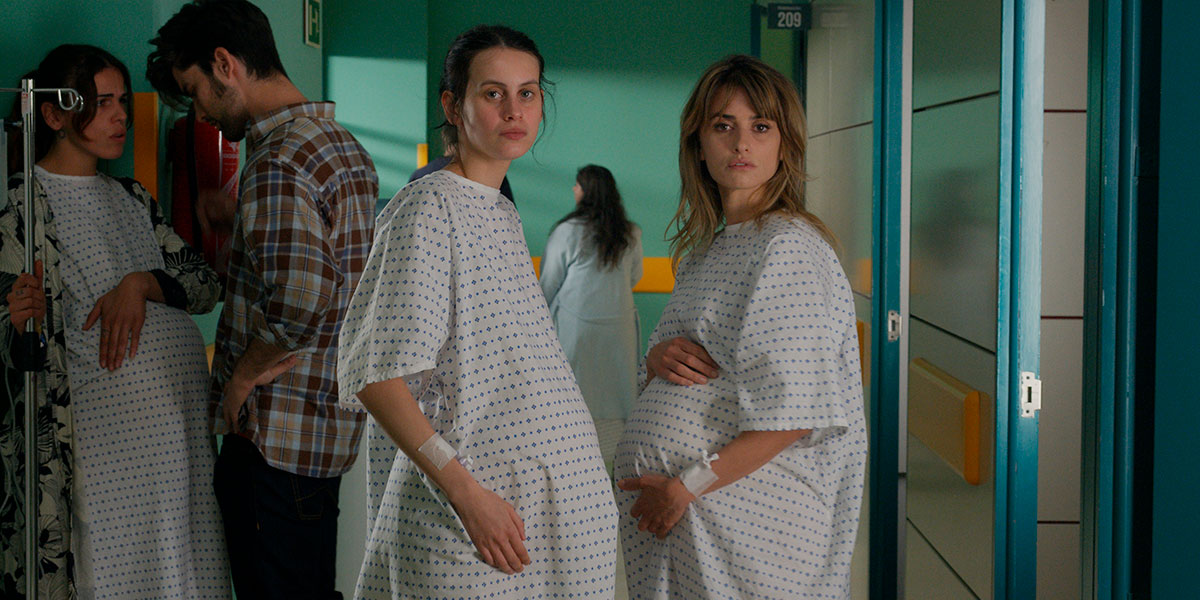
Parallel Mothers with recorded intro by Maria Delgado
Sunday, November 10 - 7pm

Pepi, Luci, Bom and Other Girls Like Mom with recorded intro by Maria Delgado
Tuesday, November 19 - 6:30pm
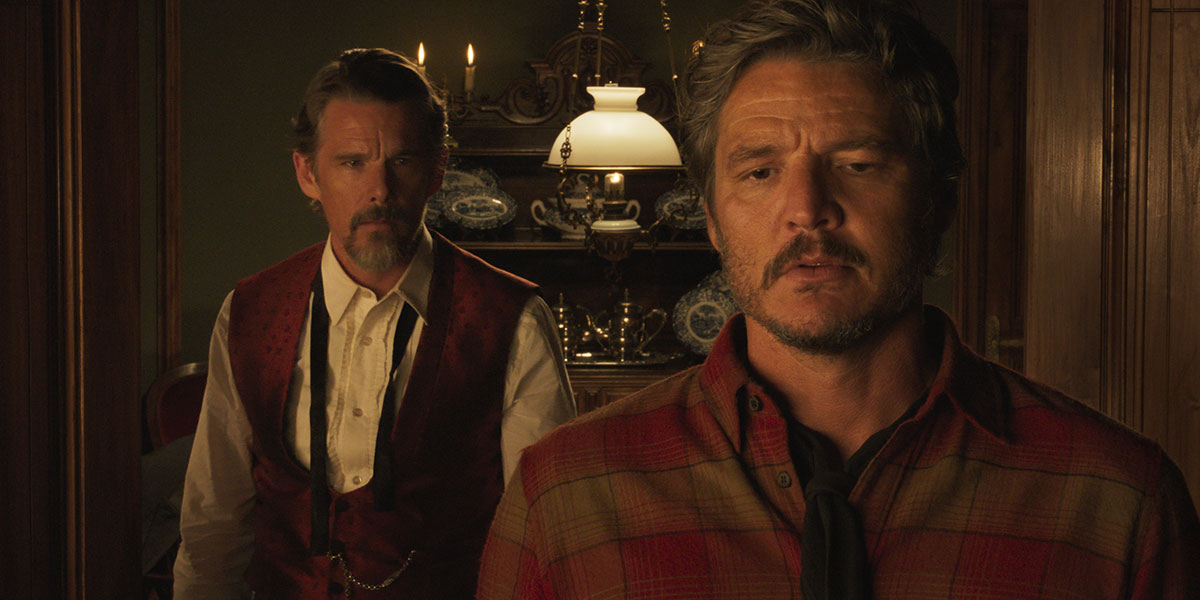
The Human Voice and Strange Way of Life with recorded intro by Pedro Almodóvar
Friday, November 8 - 6:30pm
Tuesday, December 17 – 6:30pm
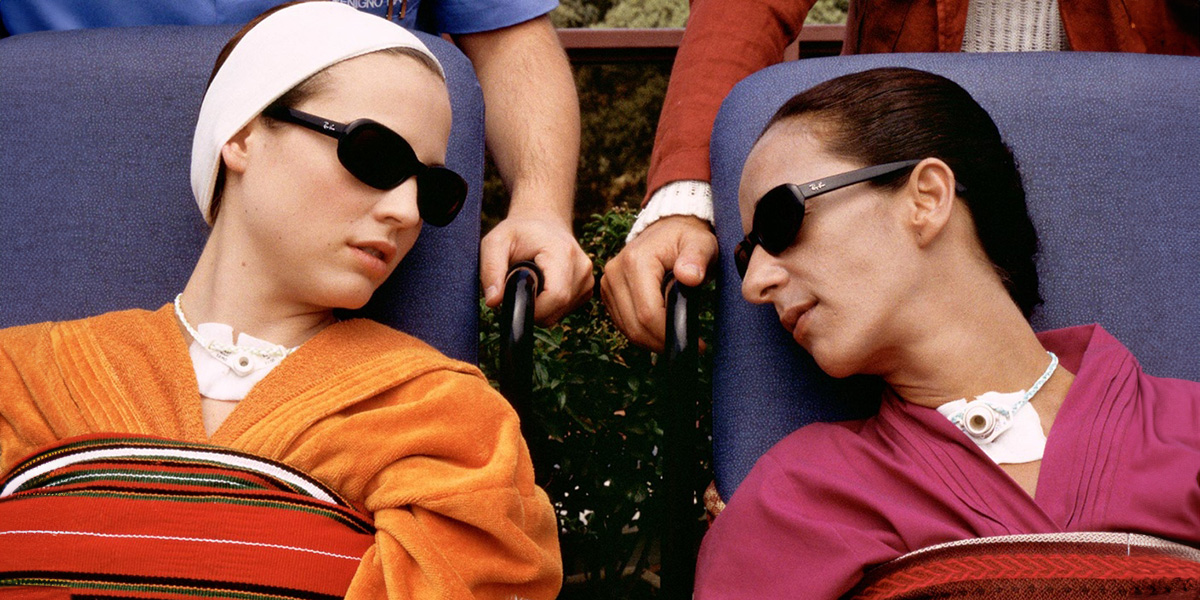
Talk to Her
Saturday, November 2 - 6:30pm
Thursday, December 26 – 6:30pm
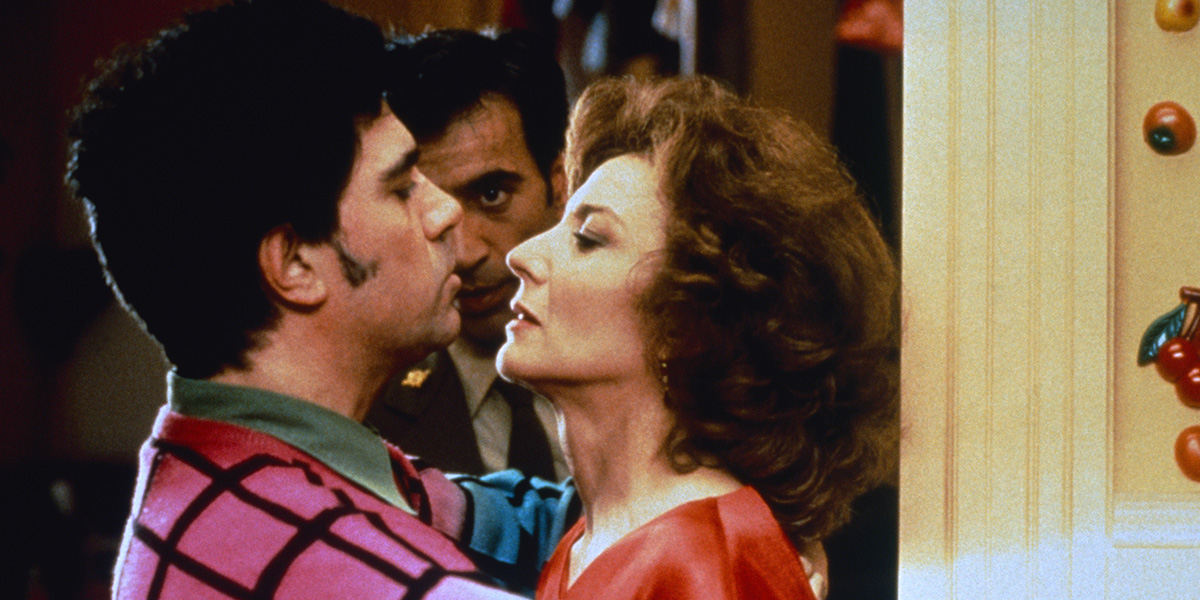
The Flower of My Secret with recorded intro by Maria Delgado
Friday, November 29 - 6:30pm
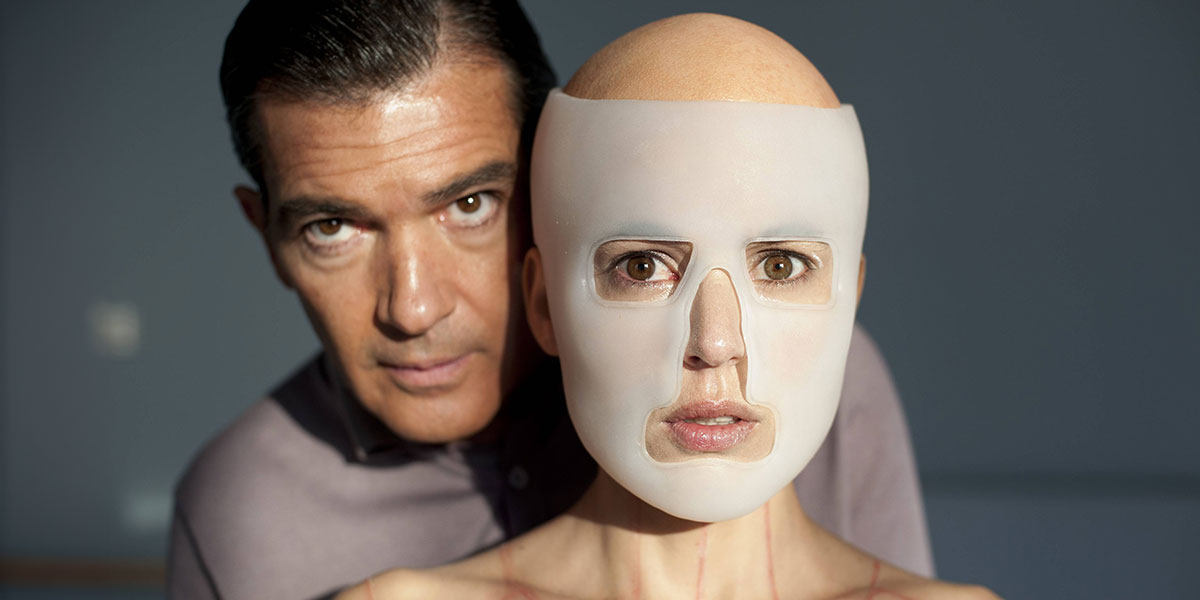
The Skin I Live In
Tuesday, November 26 - 6:30pm
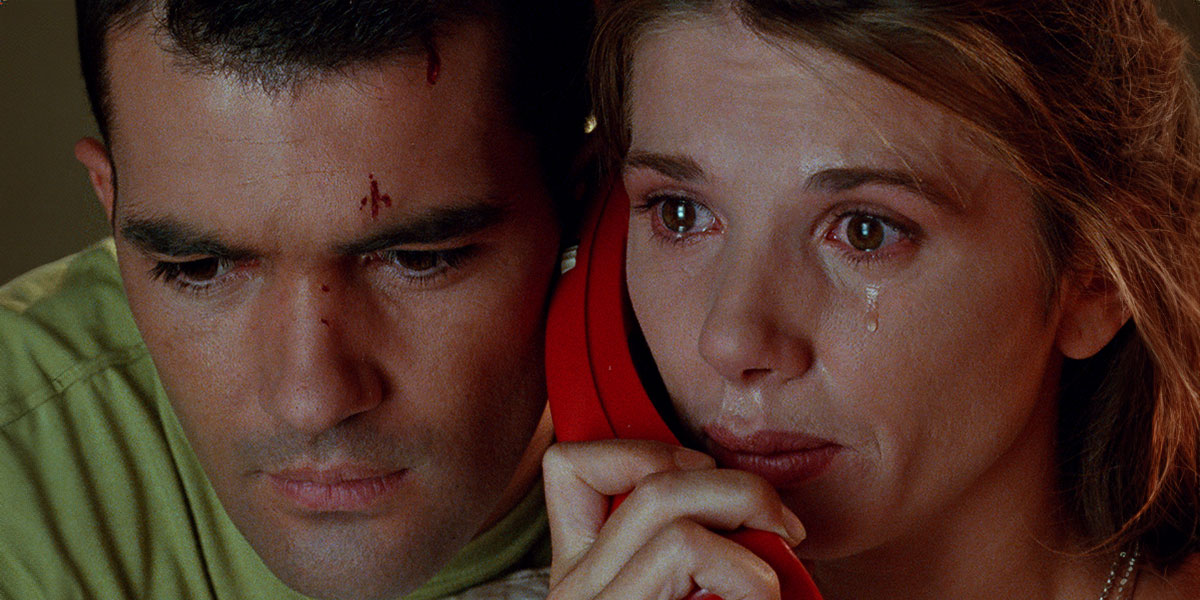
Tie Me Up! Tie Me Down! with Ricardo Acosta
Sunday, December 1 - 6:30pm
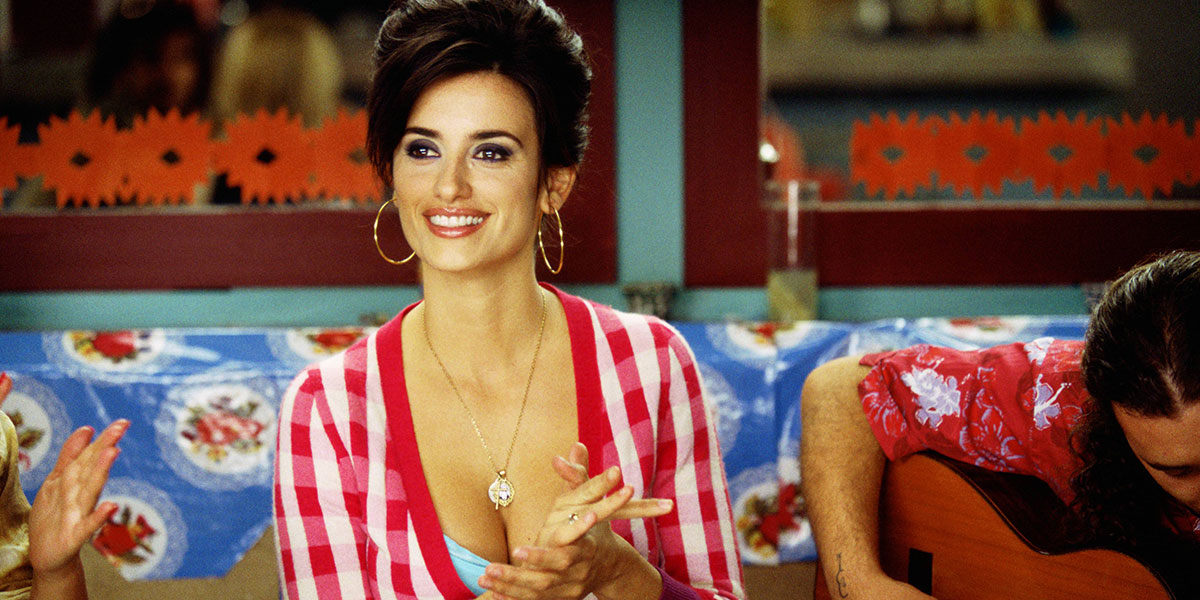
Volver
Sunday, November 10 - 4pm
Wednesday, November 27 – 6:30pm
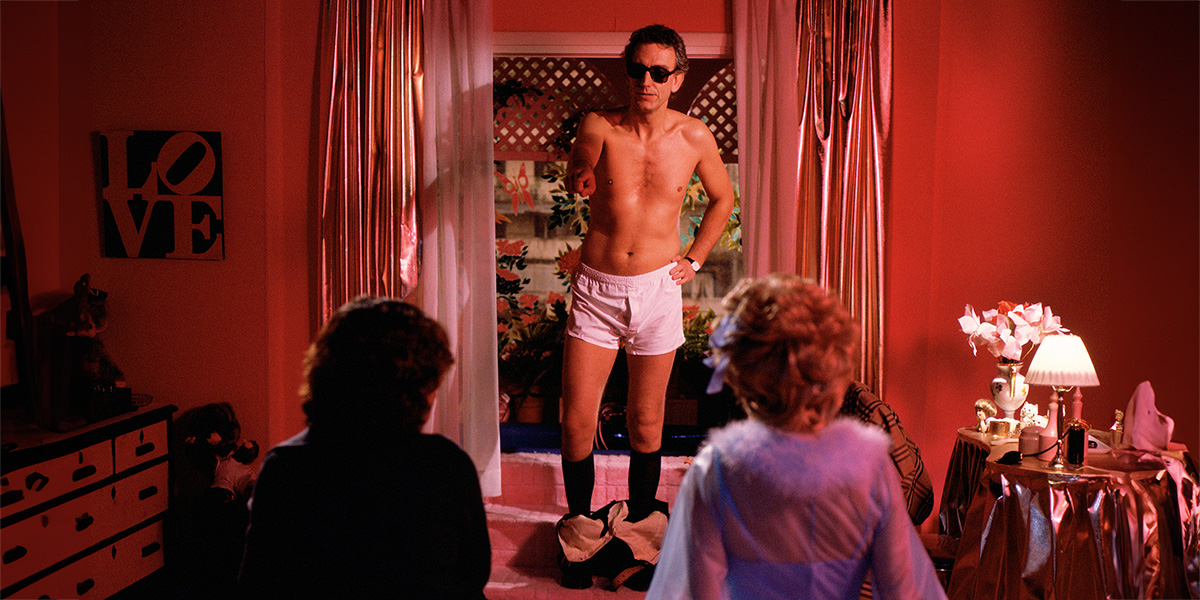
What Have I Done to Deserve This? with recorded intro by Maria Delgado
Sunday, December 22 - 4pm
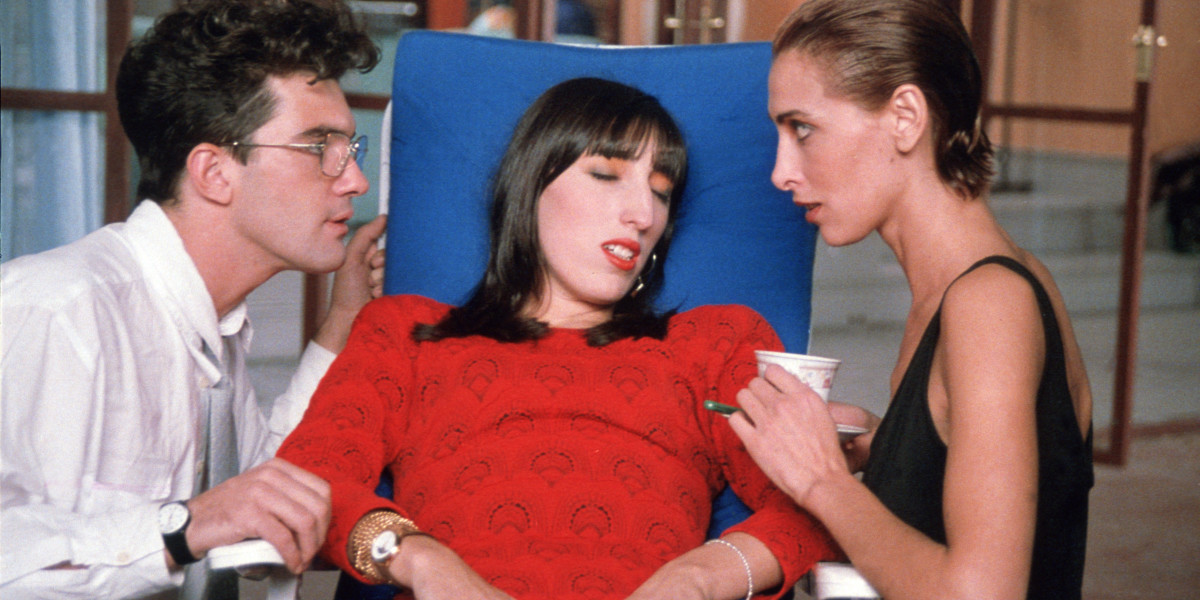
Women on the Verge of a Nervous Breakdown with Diana Sanchez
Sunday, December 8 - 7pm
Friday, December 27 – 6:30pm (No intro)